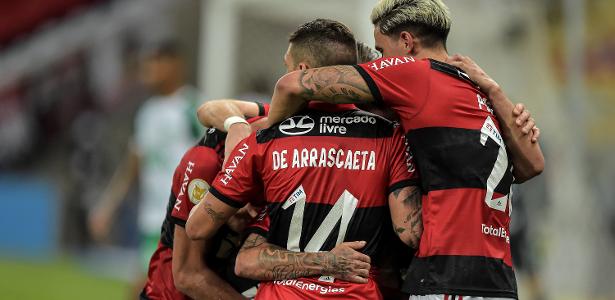Even with the changes in the amendment initially intended by Globo in the final text of the Mandating Law, which must be voted on this Wednesday (!4), the station reiterated that it continues to have the right to all the games it already has today, as well as the clubs with which it has a contract.
Thus, she warned that no competitor will can broadcast matches of the teams that today are already, by virtue of contract, their partners.
In a note sent to the column, the station reaffirmed the position already expressed last week, when it was still lobbying for the inclusion of the amendment in the Law, that it has exclusive rights to clubs. Now, he believes he has gained a new guarantee, in addition to the Federal Constitution, to preserve the current contracts with Brazilian teams.
“Globo, when negotiating with clubs under current legislation, acquired the exclusive rights to their games as host and visitor. Therefore, no other player can broadcast these games, even if they hold the rights of the other club,” said the broadcaster the column.
Globo added that “any unauthorized exhibitions would violate the acquired right obtained through these contracts.” The broadcaster understands that new legislation, such as the Mandator Law, cannot modify contracts that have already been signed, which are perfect legal transactions, protected by the Constitution.
This Tuesday (13th), the final text that will be put to a vote in the Chamber of Deputies won the inclusion of the so-called “Globo amendment”, which tries to preserve the station’s current contracts with clubs. However, the original mechanism was changed, freeing teams without prior contracts with the broadcaster to negotiate with whoever they want.
In this way, teams that move up from Série B until 2024 —date of current contracts—, for example, are free to negotiate their television deals with the channels they deem best. As well as Athletico-PR, the only team in the first division that does not have a pay-per-view agreement with the Rio de Janeiro network and today has its own platform.
Although Globo understands that, in practice, nothing has changed in relation to the proposed original amendment, the changes are considered victories by the clubs, according to the column. Teams from Series A and B were in Brasília this Tuesday (13th) to press against the amendment, presented by deputy Alex Manente (Citizenship-SP), which benefits Globo in the Mandating Law.
Representatives from Flamengo, Palmeiras, Athletico, Cruzeiro and other teams from the two main divisions of the soccer Brazilians met in the morning with the president of the Chamber, Deputy Arthur Lira (PP-AL), in an audience with Deputy Fred Costa (Patriota-MG).
The purpose of the meeting was to guarantee the vote on the Mandator’s Law without the amendment. However, the parties reached an agreement, which culminated in the editing of the text and guarantee that clubs without contracts will have freedom. However, as the parties have different understandings, it is possible that the imbroglio will last.
On Saturday, SBT read a text protesting against the amendment live, before the Brazil x Argentina broadcast. The station asked people to “alert their deputies” that the initiative would not be accepted. The positioning was seen as a way to warn the market that Silvio Santos’ channel will join the fight for rights.
Voting on the Mandant Law is scheduled to take place from 1:00 pm on Wednesday (14).
See how the amendment was:
§ 7 The provisions of this article do not apply to games whose arena rights have been assigned to third parties prior to its validity, on any platform, by one or both of the contending clubs, such situations remaining governed by article 42 of this Law.
See how the amendment was:
§ 7 The provisions of this article do not apply to contracts whose object is transmission rights entered into prior to the validity of this law, which remain governed by the legislation in force on the date of its execution.
§ 8 The contracts referred to in the preceding paragraph may not affect sports entities that have not ceded their transmission rights to third parties prior to the effectiveness of this Law, which may freely cede them, pursuant to the provisions set forth in the caput of this article.
–


